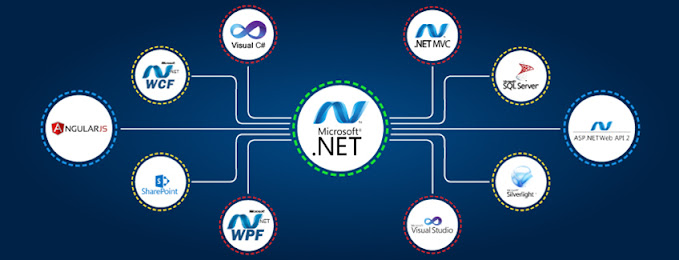How a Machine Learning Development Company Can Transform Your Business
In today's fast-paced digital landscape, businesses must leverage cutting-edge technology to remain competitive. One of the most transformative technologies available today is machine learning (ML). By partnering with an ML development company, businesses can harness the power of data-driven decision-making, automation, and predictive analytics to achieve unprecedented growth and efficiency. From streamlining operations to enhancing customer experiences, machine learning is revolutionizing the way businesses operate.
The Power of Machine Learning in Business Transformation
1. Automating Business Processes for Efficiency
Automation is one of the most significant advantages of machine learning app development. Businesses often rely on repetitive manual tasks, which are time-consuming and prone to errors. ML algorithms can automate these processes, significantly reducing human intervention while improving accuracy and efficiency.
For instance, AI-driven chatbots can handle customer service queries round the clock, reducing the burden on human agents and ensuring seamless communication. Additionally, intelligent document processing systems can extract, classify, and analyze data without manual input, allowing businesses to optimize their workflows.
2. Data-Driven Decision Making
With the vast amount of data generated daily, businesses need advanced analytics to extract meaningful insights. Machine learning models can analyze historical data to identify patterns, trends, and anomalies, enabling businesses to make informed decisions.
For example, retailers can leverage ML-driven demand forecasting to optimize inventory management, reducing stockouts and overstocking. Similarly, financial institutions can use predictive analytics to detect fraudulent activities and mitigate risks.
3. Enhancing Customer Experiences
A positive customer experience is crucial for business success. Machine learning app development helps personalize customer interactions, leading to improved engagement and satisfaction.
ML-powered recommendation engines, like those used by Netflix and Amazon, analyze user behavior to suggest relevant content and products. Similarly, AI-driven sentiment analysis tools can gauge customer feedback from reviews and social media, enabling businesses to address concerns proactively.
4. Strengthening Cybersecurity and Fraud Prevention
Cyber threats are an ever-growing concern for businesses. ML models can enhance cybersecurity by detecting suspicious activities and preventing data breaches. Anomaly detection algorithms can identify unusual patterns in network traffic, flagging potential cyber threats before they escalate.
Financial institutions, for instance, employ ML-based fraud detection systems to analyze transaction patterns and detect fraudulent activities in real time, saving businesses from significant financial losses.
5. Optimizing Marketing Strategies
Marketing in the digital age is all about targeting the right audience with the right message at the right time. ML enables businesses to analyze customer behavior, segment audiences, and optimize marketing campaigns for maximum impact.
Predictive analytics helps marketers identify potential leads, personalize advertisements, and refine content strategies. Additionally, AI-powered A/B testing enables businesses to experiment with different marketing approaches and determine what resonates best with their audience.
6. Revolutionizing Healthcare and Life Sciences
The healthcare industry is witnessing a paradigm shift with machine learning innovations. From early disease detection to drug discovery, ML is transforming patient care and medical research.
For example, AI-powered diagnostic tools can analyze medical images and detect diseases with high accuracy. Predictive analytics in healthcare can identify patients at risk of chronic illnesses, allowing for early interventions and improved patient outcomes.
7. Driving Innovation in Finance and Banking
The financial sector is leveraging machine learning for risk assessment, portfolio management, and customer service. Robo-advisors use ML algorithms to provide investment recommendations based on market trends and user preferences.
Credit scoring models powered by AI analyze vast datasets to assess a borrower's creditworthiness, reducing loan default risks for financial institutions. Additionally, ML-driven chatbots in banking offer personalized assistance, improving customer experience.
8. Improving Supply Chain and Logistics
Efficient supply chain management is critical for businesses across industries. ML algorithms optimize logistics by predicting demand fluctuations, identifying bottlenecks, and suggesting cost-effective transportation routes.
For instance, logistics companies like FedEx and UPS leverage AI-driven route optimization to enhance delivery efficiency. Machine learning also helps detect potential disruptions in the supply chain, allowing businesses to take proactive measures.
9. Advancing Manufacturing and Industry 4.0
The manufacturing sector is embracing
machine learning app development to enhance productivity and quality control. AI-powered predictive maintenance reduces equipment downtime by identifying potential failures before they occur.
Moreover, ML-based quality inspection systems analyze production line data to detect defects, ensuring that only high-quality products reach the market. The integration of AI in manufacturing is leading to increased efficiency and cost savings.
Choosing the Right ML Development Company
To fully leverage the potential of machine learning, businesses need a reliable ML development company with expertise in AI-driven solutions. Here are key factors to consider when selecting a machine learning partner:
Expertise and Experience: Look for a company with a proven track record in machine learning app development and AI-powered solutions.
Customized Solutions: Ensure that the company offers tailored ML models to address your specific business needs.
Scalability: Choose a partner that can develop scalable solutions that grow with your business.
Data Security: Verify that the company follows stringent data security protocols to protect sensitive information.
Integration Capabilities: The ML solutions should seamlessly integrate with your existing systems and infrastructure.
Conclusion
A forward-thinking ML development company can be a game-changer for businesses looking to embrace digital transformation. By integrating machine learning into various aspects of operations, organizations can enhance efficiency, drive innovation, and improve customer experiences. From automating processes to strengthening cybersecurity, the possibilities are endless.
As AI and ML technologies continue to evolve, businesses that adopt these solutions will gain a significant competitive edge in the market. Now is the time to explore the potential of machine learning app development and transform your business into a data-driven powerhouse.



.png)
Comments
Post a Comment